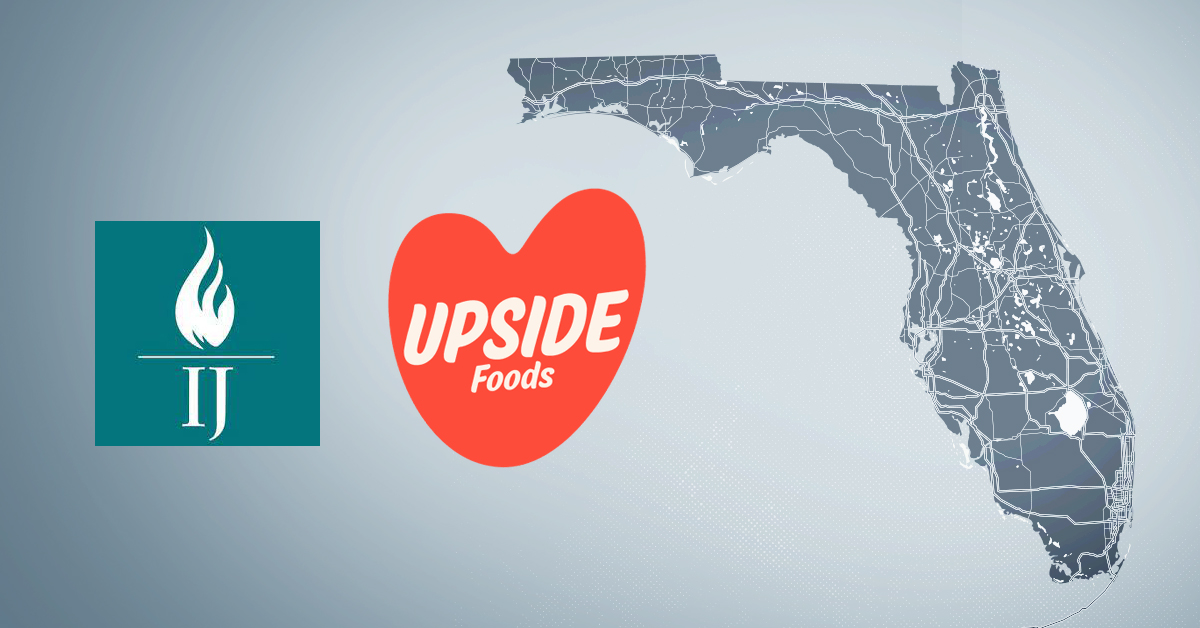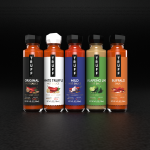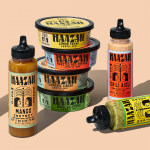UPSIDE Foods Takes Florida’s Cultured Meat Ban To Court

It hasn’t been the best year for the nascent cell-cultured meat industry. States as well as a handful of European countries have preemptively barred the food technology from nearing commercial markets by passing restrictive legislation that virtually eliminates its ability to launch in retail.
One of the most recent regulations took effect on May 1 after Florida Governor Ron DeSantis signed SB 1084 into law, banning the manufacture, sale or distribution of cultured meat in the Sunshine State.
UPSIDE Foods – one of only two companies that have been cleared to sell cell-cultured chicken in the U.S. – has decided to put up a fight. The California-based company has teamed up with nonprofit, public interest law firm, the Institute for Justice (IJ), to fight the Florida ban.
IJ filed a lawsuit in the U.S. District Court for the Northern District of Florida on Tuesday and is hoping to get a preliminary injunction filed by the end of the week. That move would speed up the process and put a temporary stay on the ban until the case can be argued in court. An injunction could also allow UPSIDE Foods to take part in Florida events like Miami’s Art Basel in December.
The lawsuit takes a multi-pronged approach to fighting Florida’s ban using three Constitutional doctrines. The Dormant Commerce Clause has been invoked to say that Florida doesn’t have the power to enact laws to favor in-state businesses at the expense of out-of-state businesses, Paul Sherman told Nosh on Wednesday.
“All of the manufacturers of cultivated meat are based outside the state of Florida. So even though Florida’s law is nominally neutral when it says nobody can manufacture, distribute or sell cultivated meat. All of the effect of that is on out-of-state people, and the record is very clear that the reason they did this was to protect in-state agricultural interests from competition,” Sherman said.
Additionally, IJ is using the Supremacy Clause and the Poultry Products Inspection Act to argue that Florida’s law cannot override federal regulation and oversight of commerce and production.
“I think we have extremely strong arguments,” Sherman added. “What Florida has done is just sort of textbook economic protectionism of the kind that the Constitution was explicitly adopted to prevent.”
He argued during a press conference Tuesday that if Florida is allowed to ban cultured meat then it would give a “liberal state the power to ban conventional meat” which is counter to the federal government’s role maintaining a “common market” for products across the country.
The IJ is no stranger to this kind of Constitutional legal battle. The law firm has argued cases against food labeling laws and is currently fighting a First Amendment case in Nevada with low-FODMAP brand Gourmend.
From the perspective of the cultured meat industry, Florida’s legislation is just the most recent assault on its struggle to scale into consumer markets. Congressional leaders have taken up the fight against cell-cultured meat with a variety of approaches focused on school lunches and food labeling of alternative meat products. France, Italy and Austria have all tried to restrict the cell-grown protein industry from endangering the food heritage of their respective countries.
Meanwhile, smaller countries like Israel and Singapore have invested heavily in the technology, seeing it as a viable solution to the lack of arable land for livestock and food production.
Despite a splashy launch in haute cuisine restaurants, UPSIDE Foods and GOOD Meat have failed to commercialize their respective cultured chicken products in tangible ways after passing FDA and USDA regulations.
Yet, Florida’s ban is seen as an overreach by state lawmakers and a further setback for cultured meat companies from scaling effectively.
“If some Floridians don’t like the idea of eating cultivated chicken, there’s a simple solution: Don’t eat it,” Sherman said. “The government has no right to tell consumers who want to try cultivated meat that they’re not allowed to.”
“The sale of cultivated meat in Florida is not a health and safety problem,” UPSIDE Foods founder Uma Valenti said at the press conference, citing his company’s regular oversight by federal inspectors just as the USDA inspects the conventional meat industry.
The Florida law is a “harbinger of what might come” when population density outpaces the carrying capacity of livestock production, Valenti added, repeating a common cultured meat industry refrain that the food tech is just about giving sustainable choice to meat-eating consumers.
“Cultivated meat is a complement, not competition to conventional agriculture,” he said.

















